The Story Of ODI World Cup Cricket: Highlights And Milestones From 1975 To 2023 Editions
The first Cricket World Cup was staged in England, played in the 60-over format with participants donning traditional white and using red balls. There were eight teams in the inaugural edition of the tournament. The West Indies, under Clive Lloyd, emerged as the champions by defeating Australia in the finals.
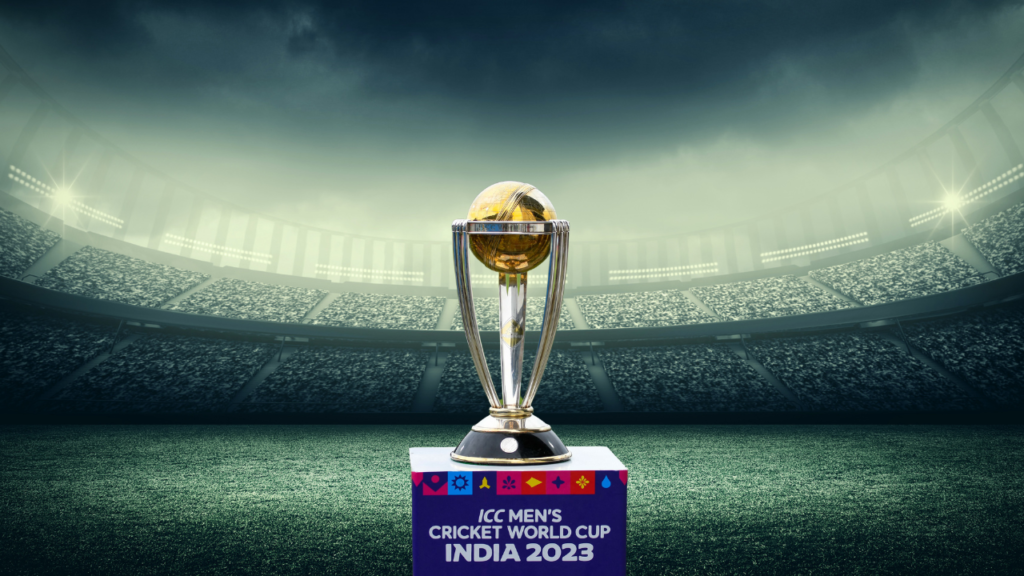
The ICC Cricket World Cup is the international championship of cricket, organized by the International Cricket Council. It has given many thrilling and dramatic moments since the very first event in 1975. The following is an elaborate journey of highlights and milestones of each edition to outline how this most prestigious tournament evolved.
1975: The Beginning
The first Cricket World Cup was staged in England, played in the 60-over format with participants donning traditional white and using red balls. There were eight teams in the inaugural edition of the tournament. The West Indies, under Clive Lloyd, emerged as the champions by defeating Australia in the finals. His swashbuckling 102 off 85 provided the backbone to that victory and paved the way for future editions. The West Indies were dominant in this new format, showing a mix of power, skill, and strategy.
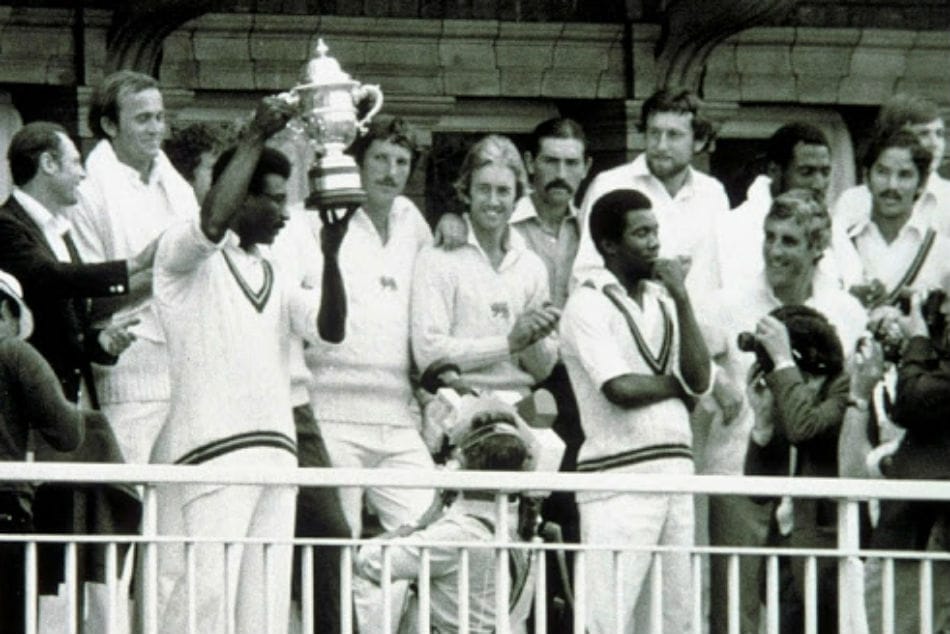
1979: West Indies Continue Their Dominance
The second edition, again staged in England, saw the West Indies successfully defend their title. Among the outstanding performances were those of Gordon Greenidge and Vivian Richards, with Richards’ iconic 138* in the final against England being one for the ages. The last rites were performed by Joel Garner, who took 5 wickets for a mere 38 runs in his spell to clinch another easy victory for the West Indies. The successive wins of the West Indies only reaffirmed their position at the top of ODI cricket throughout the 1970s.
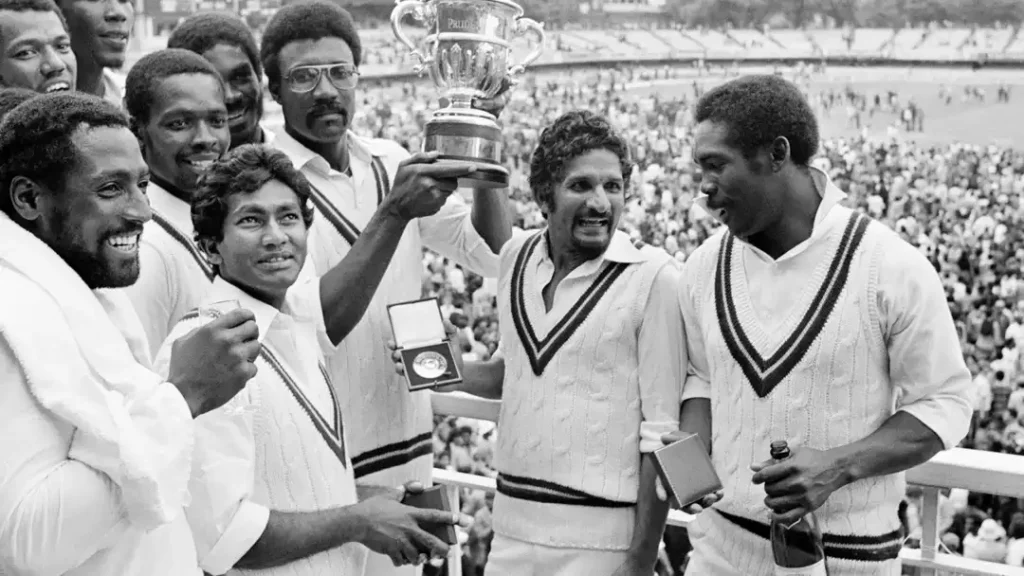
1983: India Stuns the World
The unexpected victory of Kapil Dev-led India heralded a new era in the history of cricket. Against the mighty West Indies, India defended a modest total of 183 at Lord’s. Kapil Dev’s incredible running catch to dismiss Vivian Richards turned the course of the final. Equally, his historical 175* against Zimbabwe in the group stage, rescuing India from 17/5, remains one of the tournament’s legendary knocks. This victory set the cricketing revolution in India alight and inspired a whole new generation of players and fans.
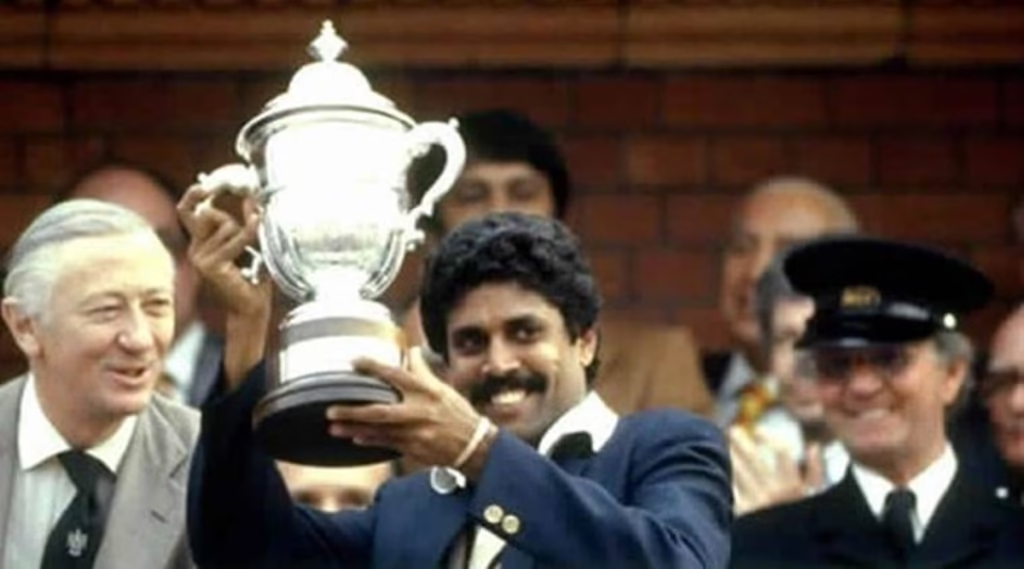
1987: Australia’s First Win
For the first time, the tournament moved out of England as it was staged jointly by co-hosts India and Pakistan. Australia, captained by Allan Border, eventually won their maiden World Cup. David Boon played a calm innings of 75, while Craig McDermott’s bowling resulted in a narrow 7-run win against England in a most thrilling final. The 1987 World Cup, also went down in the history books because the number of matches was reduced to 50 overs a side.
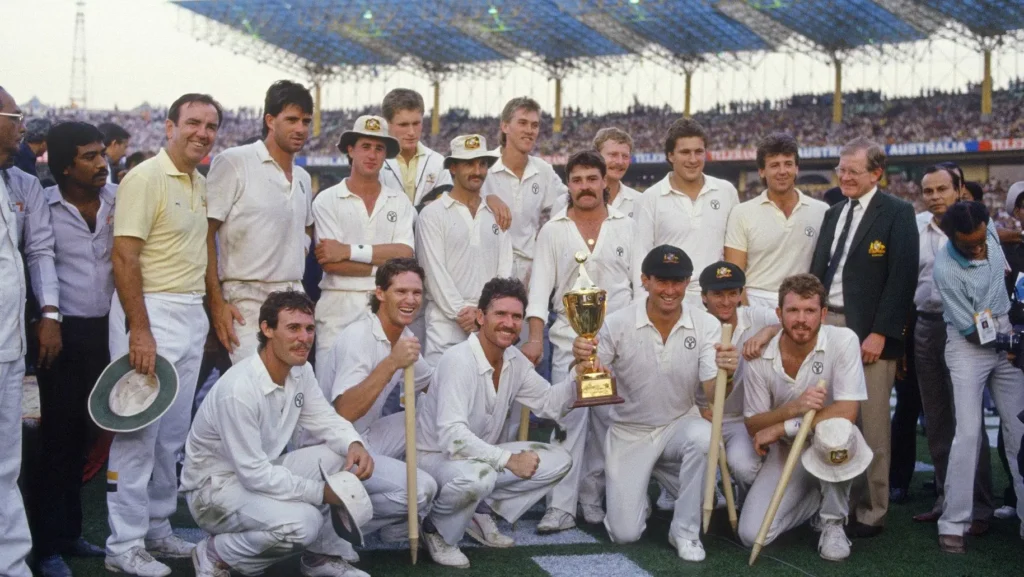
1992: Innovation and Pakistan’s Glory
The 1992 World Cup, hosted jointly by Australia and New Zealand, marked a change with colored kits, white balls, and day-night matches. The event totally revamped the aesthetic and appeal of the game. In this edition of the tournament, under the inspired leadership of its captain Imran Khan, Pakistan won its first World Cup title, defeating England in the final. The tournament-deciding factor was Waseem Akram’s electrifying two-in-two-over spell against England in the final. Also witnessed here was the return of South Africa to international cricket after decades of isolation, adding another dimension to the game.
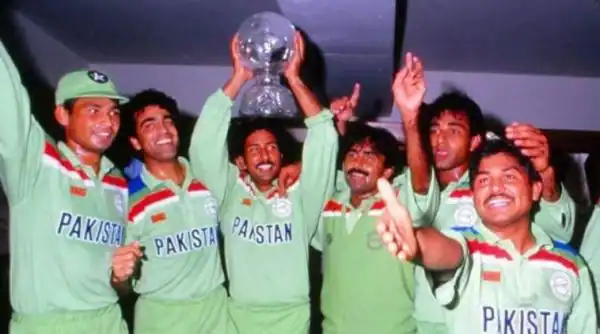
1996: Sri Lanka’s Fairy Tale
Sri Lanka co-hosted the tournament with India and Pakistan and scripted a fairy tale by clinching their maiden title. Arjuna Ranatunga’s team revolutionized one-day cricket with aggressive openers Sanath Jayasuriya and Romesh Kaluwitharana setting the tone in the Powerplays. Sri Lanka remained unbeaten throughout the tournament and defeated Australia in the final, with Aravinda de Silva’s all-round brilliance (107* and 3 wickets) being the highlight. Their victory symbolized the rise of smaller cricketing nations.
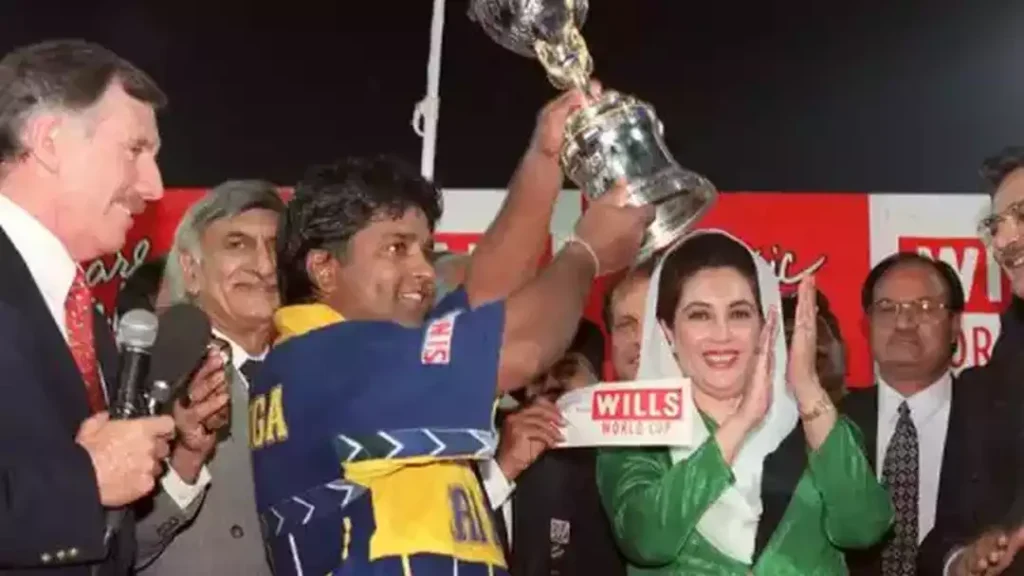
1999: Australia Begins Its Ascent
The 1999 edition was staged in England, where Australia’s era of dominance commenced. Steve Waugh’s side showed resilience, most particularly during their tied semifinal against South Africa, remembered for Lance Klusener’s heroics and the dramatic run-out that sealed Australia’s place in the final. Shane Warne produced a magical spell during the semifinal and final to set up Australia’s easy win over Pakistan in the one-sided final while chasing a target of 133.
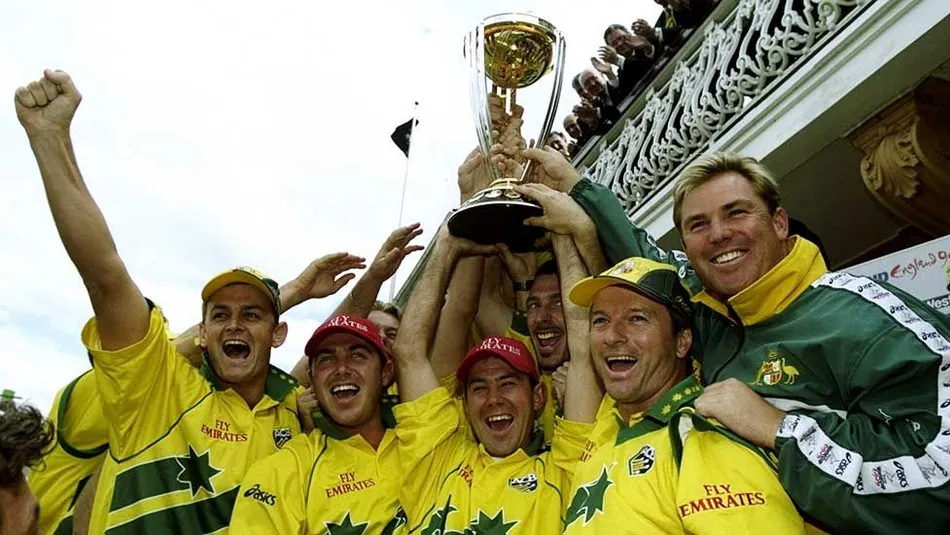
2003: Ponting’s Australia
The 2003 World Cup, played in South Africa, Zimbabwe, and Kenya, was a straight steamroller for Ricky Ponting’s Australia, which went through the tournament undefeated. Ponting’s 140* in the final against India was something of a masterclass in power-hitting. India, under Sourav Ganguly, had a stirring run to the final, with the irrepressible Sachin Tendulkar topping the runs scored in a single edition with 673. Another highlight was the surprise semifinal run of Kenya to show what associate nations can do.
2007: Australia’s Hat-Trick
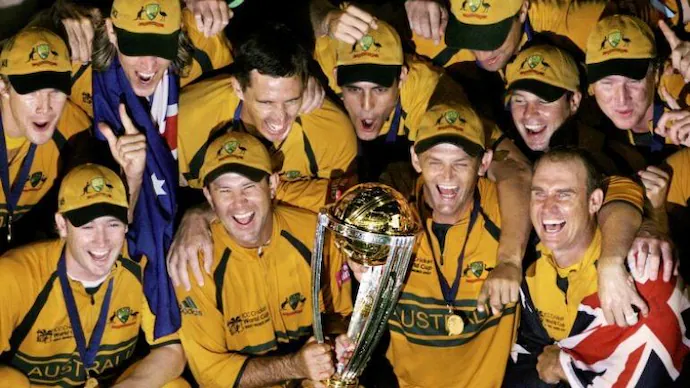
The 2007 edition was staged in the West Indies, where Australia completed a hat-trick of World Cup triumphs under the captaincy of Ricky Ponting. The highlight of the rain-affected final against Sri Lanka was Adam Gilchrist’s explosive 149. The format and duration of the tournament came under much criticism, but there could be no doubting Australia’s supremacy as they stretched their unbeaten World Cup streak to 29 matches.
2011: India’s Moment of Glory
Co-hosted by India, Sri Lanka, and Bangladesh, the 2011 World Cup saw India lifting the trophy after 28 years. MS Dhoni’s unbeaten 91 and the iconic six to seal the win against Sri Lanka in the final are etched in history. Yuvraj Singh’s all-round brilliance, despite battling illness, earned him the Player of the Tournament award. Sachin Tendulkar’s dream of winning the World Cup in his sixth attempt added an emotional dimension to India’s triumph.
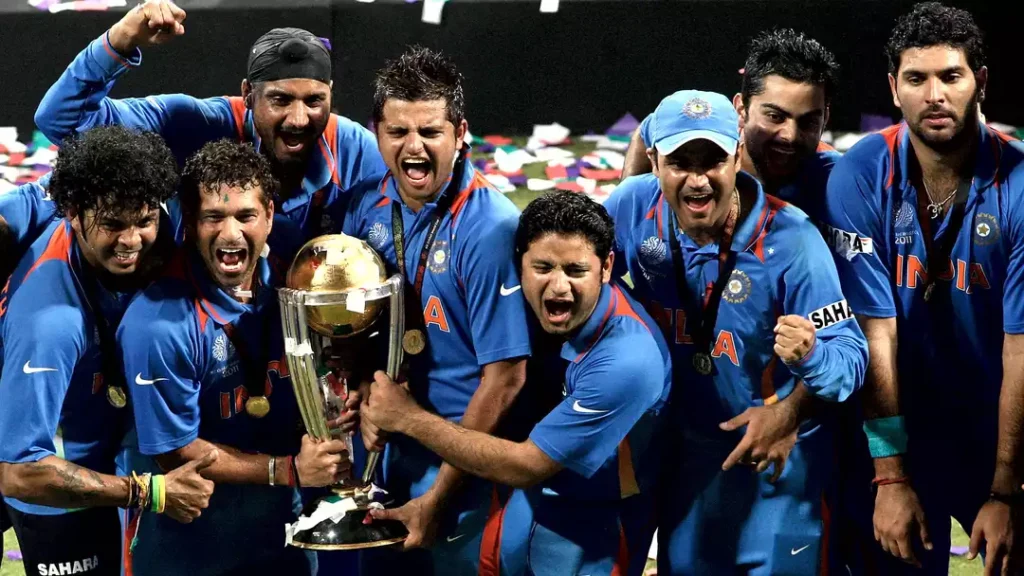
2015: Australia’s Fifth Title
The tournament was co-hosted with New Zealand, but the Aussies made sure they won their fifth title by beating New Zealand in the final. Mitchell Starc’s deadly bowling throughout the tournament got him the award of Player of the Tournament. Co-hosts New Zealand, led by captain Brendon McCullum, excited fans with an aggressive approach, more so in that enthralling semifinal victory over South Africa.
2019: England’s Thrilling Victory
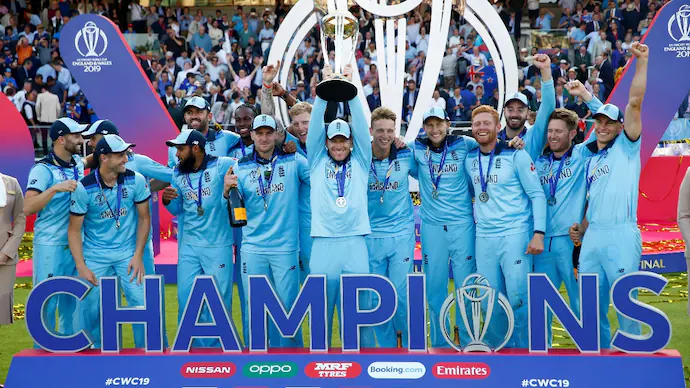
In 2019, England won their first World Cup on home soil in the most dramatic final against New Zealand. The match ended in a tie, which went to a Super Over, also tied. England was declared the winner under the boundary count rule. Ben Stokes batted heroically, and Jofra Archer was ice-cool during the Super Over; these two events are what settled the deal for England in this historic World Cup win. This edition has shown that there is little that can decide between two cricket matches.
2023: India’s Historic Win
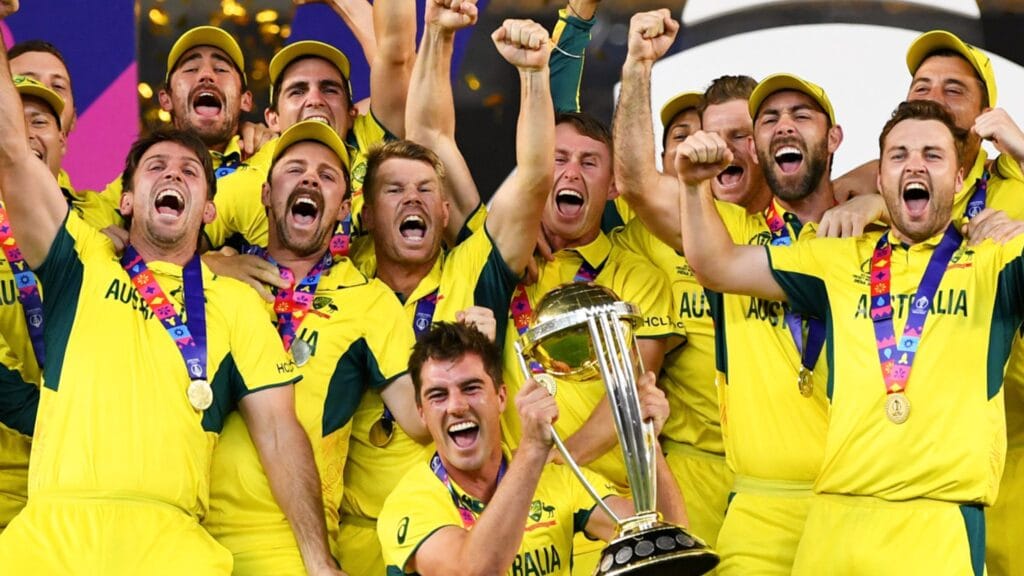
The ICC Men’s Cricket World Cup 2023 was the thirteenth edition of the Cricket World Cup. It was hosted by India from 5 October to 19 November 2023 across ten venues. It was the fourth World Cup held in India, yet the first where India was the sole host.
The competition included ten Teams. The best four groups in the competition that entered the knockout stage were India, South Africa, Australia, and New Zealand. In the knockout stage, India and Australia progressed by beating New Zealand and South Africa, separately, into the last. Australia won the final by six wickets on 19 November at the Narendra Modi Stadium in Ahmedabad to lift their 6th Cricket World Cup title.
Virat Kohli was adjudged the player of the series – he scored the most runs – and Mohammed Shami had the best wickets haul. Complete participation in the matches was 1,250,307 which is the most elevated in any Cricket World Cup till date. The last of the competition broke viewership record in India with 518 million watchers and a pinnacle of 57 million streaming watchers.
Evolution of the Tournament: FORMAT CHANGES
The original 60-over format spawned the current 50-over game, showing through the years that this event has been changing according to changes in dynamics and audience preferences.
Technological Steps: Technologies introduced, such as the Decision Review System—DRS—and real-time analytics, have changed decisions or viewing experiences in the game.
Global Reach: From its humble beginning with 8 teams in 1975, it has grown into an event involving many more—great for associate nations in fostering the game globally.
50-over game, showing through the years that this event has been changing according to changes in dynamics and audience preferences.
Technological Steps: Technologies introduced, such as the Decision Review System—DRS—and real-time analytics, have changed decisions or viewing experiences in the game.
ICC Cricket World Cup has been referred to as the carnival of greatest cricket, birth of legends, and moments of brilliance achieved to enthrall fans worldwide. From the West Indies’ reign to the era of Australia and now underdog victories, it has only gotten bigger and further cemented its place as one of the greatest competitions in the world of cricket
Also Read This- The Evolution Of Cricket: From It’s Origins To Modern Formats Like T20 And The Hundred
You may also like
Calendar
| M | T | W | T | F | S | S |
|---|---|---|---|---|---|---|
| 1 | 2 | 3 | ||||
| 4 | 5 | 6 | 7 | 8 | 9 | 10 |
| 11 | 12 | 13 | 14 | 15 | 16 | 17 |
| 18 | 19 | 20 | 21 | 22 | 23 | 24 |
| 25 | 26 | 27 | 28 | 29 | 30 | 31 |
Leave a Reply